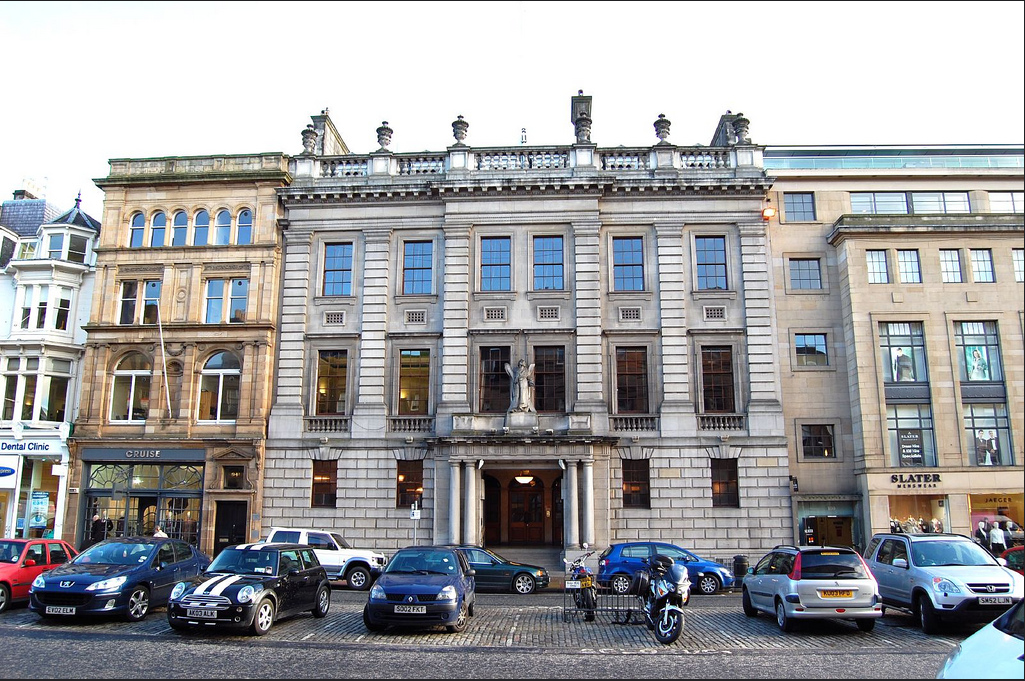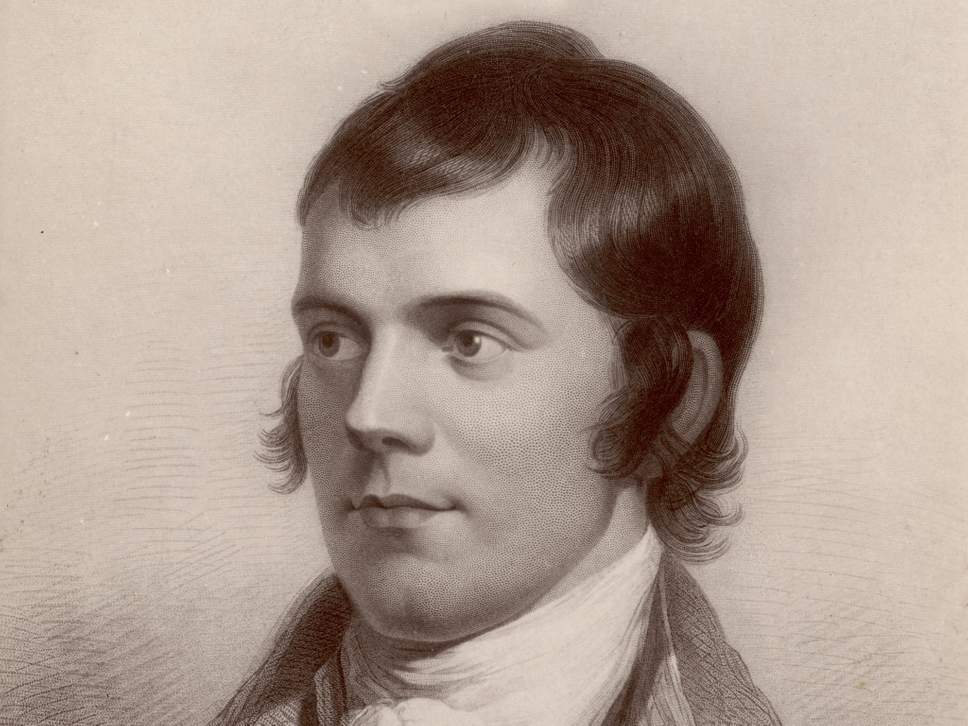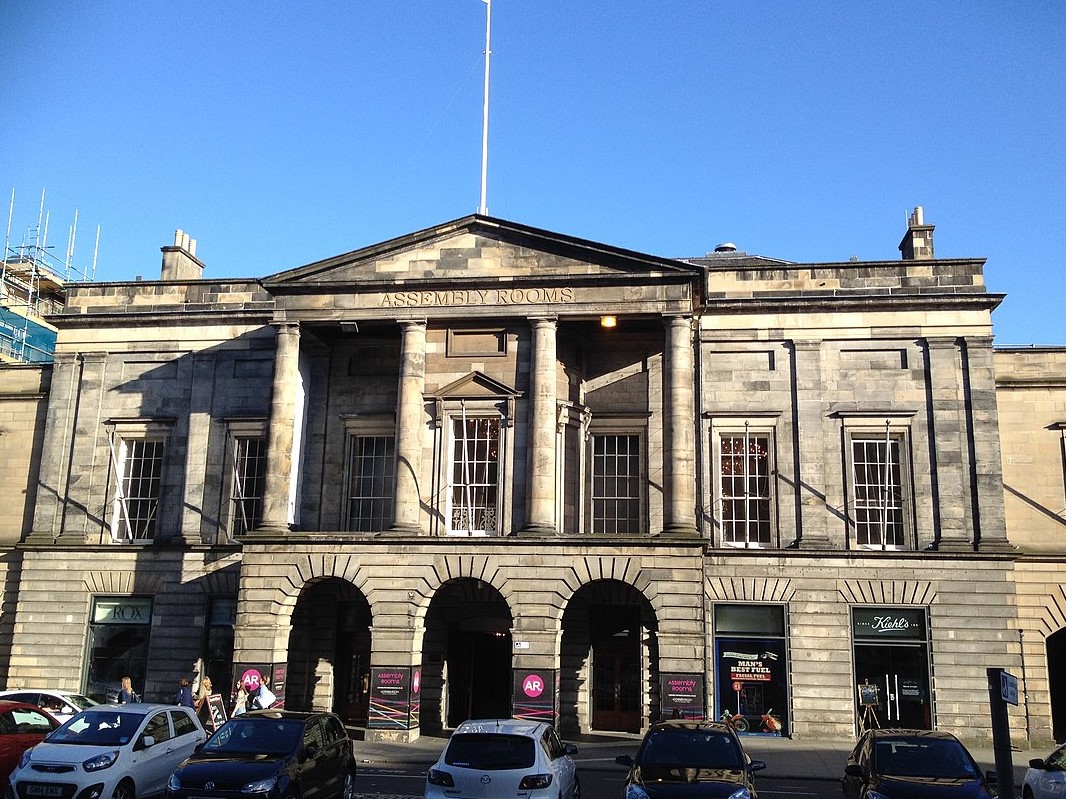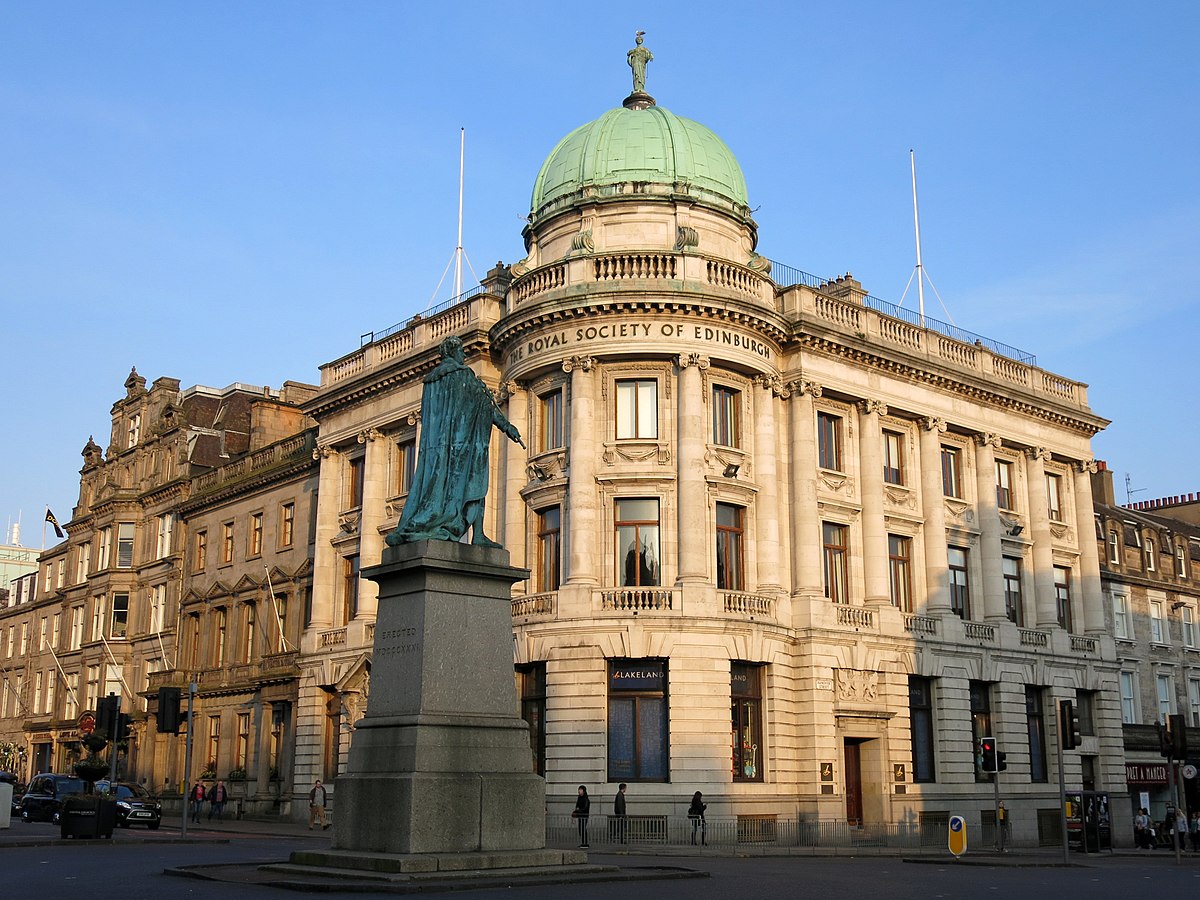
Masonic Grand Lodge, Scotland
Photograph by cc-by-sa/2.0 - © Jim Campbell - geograph.org.uk/p/3003331
Freemasons' Hall
The Freemasons of Scotland have used properties at 96 George Street since the middle of the 19th. century. However, their history can be traced back to the 16th. century and the Grand Lodge was formed in Edinburgh on 30 November l736. The Grand Lodge soon adopted the values of the Scottish Enlightenment and many of the key thinkers of the time were members, including Robert Adam, Hugh Blair, Lord Monboddo, Henry Mackenzie, Dugald Stewart and, perhaps surprisingly, Robert Burns (1759 – 1796). Known as Scotland’s ploughman poet and undoubtedly a man of the people, Burns nonetheless took refuge in the conviviality of Freemasonry where he found kindred spirits as a supporter of the French Revolution, a critic of religious hypocrisy and puritanism and the political inequalities of secular society. No poem quite embodies these concepts as eloquently as A Man's a Man for A' That, written in 1795 by Burns in praise of the egalitarian and liberal ideas of the enlightenment.
"Is there for honest Poverty
That hings his head, an' a' that;
The coward slave - we pass him by,
We dare be poor for a' that!
For a' that, an' a' that.
Our toils obscure an' a' that,
The rank is but the guinea's stamp,
The Man's the gowd for a' that."

Robert Burns
Public domain


